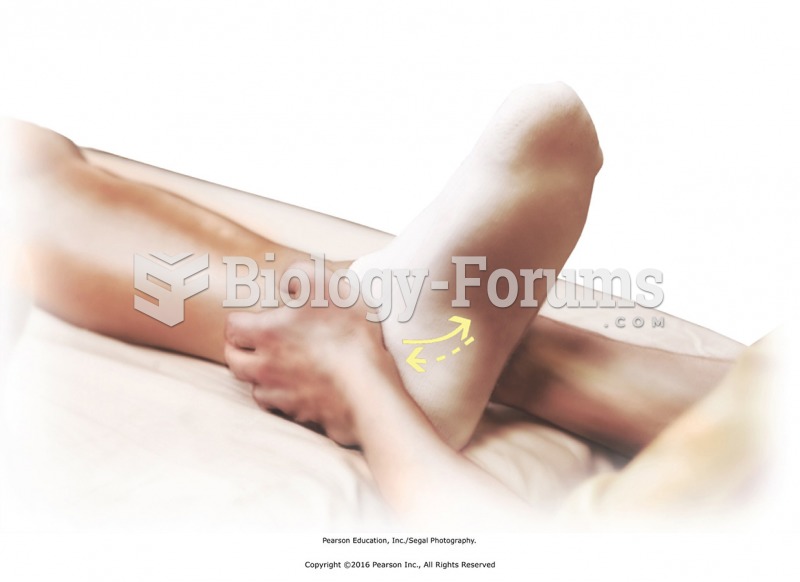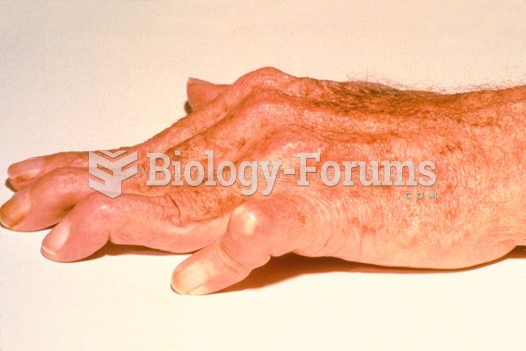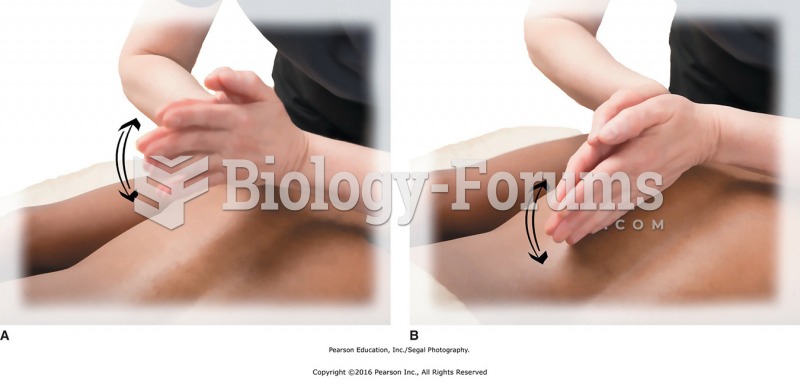This topic contains a solution. Click here to go to the answer
|
|
|
Did you know?
Allergies play a major part in the health of children. The most prevalent childhood allergies are milk, egg, soy, wheat, peanuts, tree nuts, and seafood.
Did you know?
As many as 20% of Americans have been infected by the fungus known as Histoplasmosis. While most people are asymptomatic or only have slight symptoms, infection can progress to a rapid and potentially fatal superinfection.
Did you know?
Green tea is able to stop the scent of garlic or onion from causing bad breath.
Did you know?
Illicit drug use costs the United States approximately $181 billion every year.
Did you know?
Today, nearly 8 out of 10 pregnant women living with HIV (about 1.1 million), receive antiretrovirals.
 Defibrillator. Defibrillators are devices that supply a voltage charge to the heart in the hope of r
Defibrillator. Defibrillators are devices that supply a voltage charge to the heart in the hope of r
 Mobilize the ankle. Place the heels of the hands just below the ankle bones, with fingers pointing ...
Mobilize the ankle. Place the heels of the hands just below the ankle bones, with fingers pointing ...





